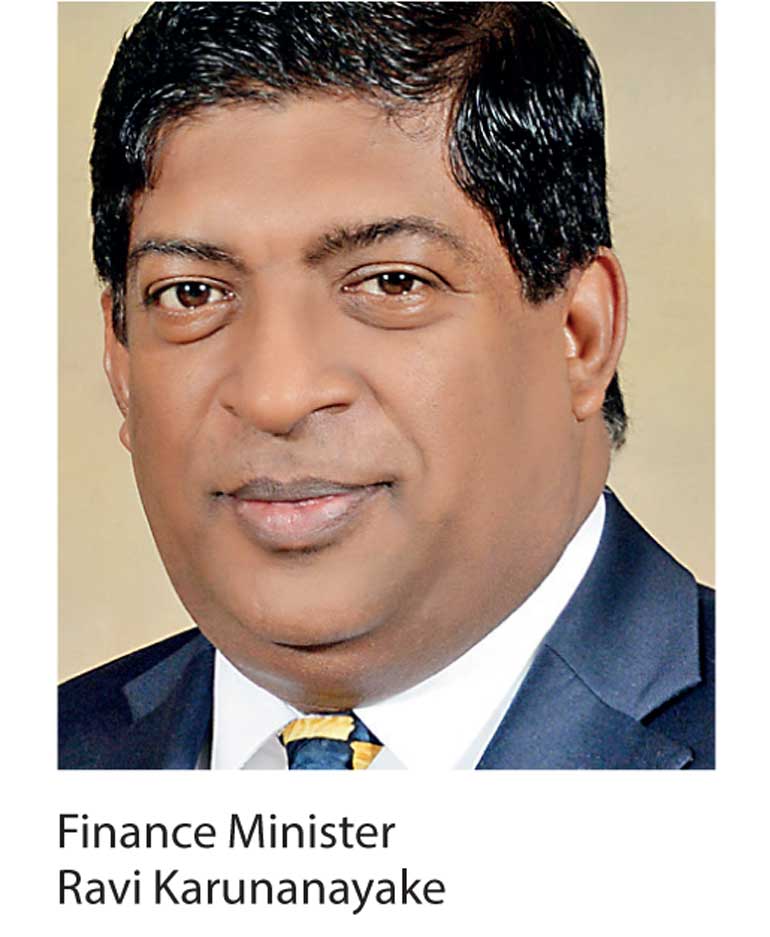Saturday Feb 21, 2026
Saturday Feb 21, 2026
Wednesday, 12 April 2017 00:00 - - {{hitsCtrl.values.hits}}
By S.S. Selvanayagam
A public interest litigation lawyer yesterday (11) filed petition for the Special Determination of the Supreme Court challenging the Bill titled ‘Foreign Exchange, 2017’.
Petitioner N. Dharshana Weraduwage alleges that certain Clauses of the said Bill are drafted to enable the Finance Minister to have an upper hand and/or unwarranted control over the affairs, powers and/or duties of the Central Bank and to negate the entrenched provisions of the Monetary Law Act.
He charges that certain other clauses have been drafted to exclude regulation of “Gold” exchange which was regulated hitherto through the Exchange Control Act.
Petitioner states the Bill titled ‘Foreign Exchange, 2017,’ as a whole or in part, is in vehement infringement of many entrenched Articles of the Constitution including, Articles 03, 04, 12(1), 14(1)(g), 27(2)(a), 27(3), 148 and duly require the approval of the people at a Referendum by virtue of the provisions of Article 83.
The said Bill was published in the Supplement (issued on 24 March) to Part II of the Gazette of the Democratic Socialist Republic of Sri Lanka and has been placed on the Order Paper of Parliament on 7 April.
He states the Clauses 4 (2) (a), (b) and (c) of the bill are in Vehement Infringement of Articles 03, 04, 12(1), 14(1)(g), 27(2)(a), 27(3), 148 of the Constitution and duly require the approval of the people at a Referendum by virtue of the provisions of Article 83.
 He claims the said Clauses and the Bill collectively can have unforeseeable consequences endangering the national economy, security, fundamental rights and the sovereignty of the people.
He claims the said Clauses and the Bill collectively can have unforeseeable consequences endangering the national economy, security, fundamental rights and the sovereignty of the people.
He states the said Clauses and the Bill collectively have been drafted to exclude the application of uniform rates of exchange as authorised by Subsection (3) of Section 76 of the Monetary Law Act, which had a binding force on all Foreign Exchange Transactions in terms of Section 05(2) of the Exchange Control Act No 24 of 1953 (as amended).
Said Clauses and the Bill collectively have been drafted contrary to the entrenched provisions of Sections 63, 64, 65, 68, 73, 74, 81 of the Monetary Law Act No. 58 of 1949 (as amended), which can have unforeseeable consequences.
He states Clause 8 of the bill is in Vehement Infringement of Articles 03, 04, 12(1), 14(1)(g), 27(2)(a), 27(3), 148 of the Constitution and duly requires the approval of the people at a Referendum by virtue of the provisions of Article 83, since said Clause is drafted to authorise many other categories, classes and/or persons to deal in foreign exchange in contrast to the Exchange Control Act.
He laments the said Clauses may seriously curtail the application, affect, and/or ambit Prevention of Money Laundering Act, No. 5 of 2006, Convention on the Suppression of Terrorist Financing Act, No. 25 of 2005 or the Bribery Act (Chapter 26) and other connected and/or incidental laws.
He states Clause 13 of the bill are in infringement of Articles 03, 04, 12(1), 14(1)(g), 27(2)(a), 27(3), 148 of the Constitution as the Board of Inquiry is patently partial, as long as the appointment, remuneration and/the power of removal is vested in the Minister of Finance.
He states Clause 22 has no binding force on the Minister of Finance to comply with advice of the Monetary Board in the event of a potential threat to the financial stability of Sri Lanka.
He is seeking the Court to determine and declare, that the Bill titled ‘Foreign Exchange’ in whole, or in part thereof, is inconsistent with one or more Articles of the Constitution of the said Republic and to determine and declare, that the in whole or in part thereof, requires two-third approval of Parliament by virtue of the provisions of Article 82.